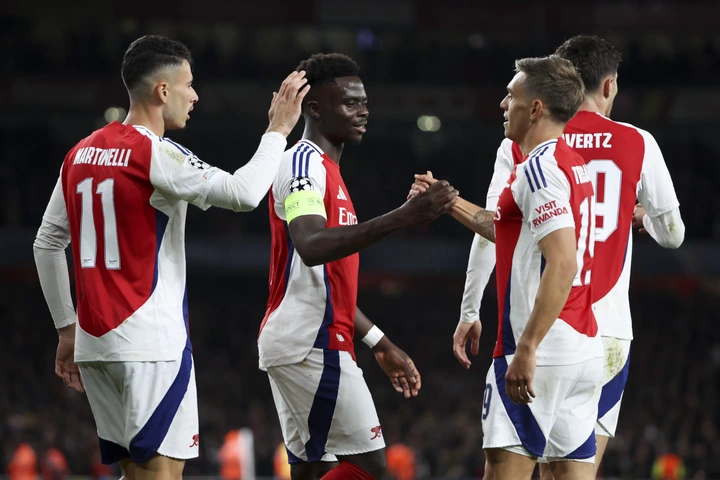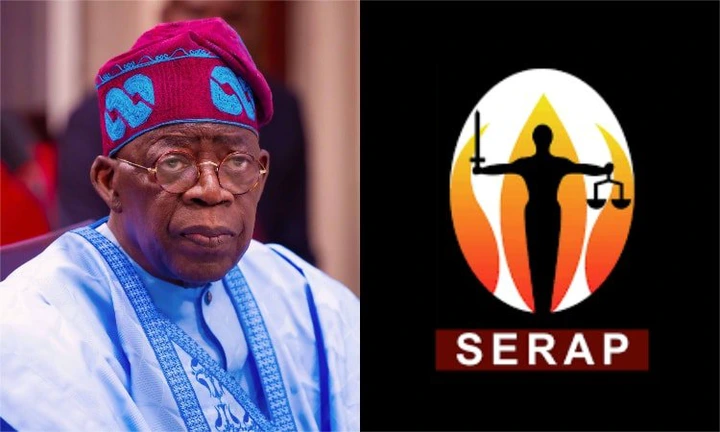For years, fans speculated about Humblesmith’s silence, with many wondering if he had said goodbye to the music industry for good. Now, he’s back, bigger and better, reclaiming his place in the Afropop world. In an exclusive interview with SEGUN ADEBAYO, Humblesmith opened up about his personal struggles during his time away, shedding light on the challenges he faced while trying to navigate the highs and lows of the industry. He also discussed the issues plaguing the music scene and how he plans to overcome these obstacles moving forward. ...Tap To Read The Full Story Here | ..Tap To Read The Full Story Here...
It’s been a while the industry felt your presence; what have you been up to?
I’ve been working behind the scenes in my own way, strategically waiting for the right moment. Now, I have a new project in the works. I’ve been focused on one album for years, and by God’s grace, I’ve recorded a lot of songs. From this project, I’ve decided to release a song. The track is titled Sochi, which means ‘Only God.’ It’s a joyful song that holds a lot of meaning for me. Initially, I wasn’t planning to release any singles this year, but this particular song really rose up in my spirit, and I felt it was the right time to share it with the world.
You have been in the industry for some years and you have some hit songs to your name. Which of your songs will you consider the biggest?
None of my songs can be singled out as the biggest because the biggest is still yet to come. Every one of my songs is big in its own way. Even today, my song Osinachi continues to be played across all platforms, but I know there are songs I’ve yet to release that will surpass it. Osinachi is more than just a song; it’s a powerful message of prophecy that has no end. Tomorrow, something might happen to you, and you’ll find yourself connecting to the song. Every lyric in Osinachi wasn’t something I wrote down—it came to me directly, which is why I call it a prophecy. Many of the things I sang about back then are things that are happening in my life today. I prophesied over my life through that song, and now I’m witnessing it come to pass
You recorded Osinachi when you were with your former label. Do you still get royalties from that song?
That’s one of my deepest pains every day, but I’m doing my best to manage it. Every time I hear Osinachi being played or when I perform it on stage, I feel a wave of emotion. On the outside, I might seem like the happiest guy, but inside, a part of me is crying, and those tears aren’t just ordinary. It hurts knowing that the proceeds from the song are going to someone else. Each time I perform Osinachi, there’s a silent battle within me, a struggle between joy and heartache. It’s hard to accept that after all the hard work I put into that song, others are reaping the benefits while I don’t receive what I rightfully deserve. It’s like watching the fruit of your labor go to someone else. But I hold on to the belief that God will bless the work of my hands. He promises that those who work will eat, and I trust that, even though I’m not getting what I should right now, God has other ways to bless me. When the time is right, we’ll get there.
How much of your growing-up days shaped you into who you are now?
My childhood was rough, but those experiences shaped who I am today. I grew up in Abakaliki, Ebonyi State, and I used to hawk on the streets. Sometimes, I look back and feel a bit embarrassed, but I know it’s those moments that built my character. My upbringing plays a huge role in my life now. There are times when I’m making music, and suddenly, the spirit takes me back to my childhood. I began to hear sounds from when I was a little boy, and those memories started weaving their way into my songs. Osinachi, the song we’re celebrating today, is actually a sound that was born when I was just six years old. It’s incredible how life works—things from my past are finding their place in the music I create today. It reminds me that my journey, as difficult as it was, is still part of the music I’m making now.
With the current economic situation of the country, what do you think of Nigeria at this point?
The truth is, at this moment, I feel compelled to speak for the people who don’t have the privilege to live the life they deserve or want, especially with the current situation in Nigeria. How can they feel any sense of celebration when reflecting on past Independence Days? Things have become unbearably expensive. There are people who can’t even afford one meal a day anymore. Those who used to manage two meals now struggle with just one, and those who could barely afford one might have nothing at all now. There are people without homes, and fuel prices are through the roof. Some are being forced to sell their cars just to survive. Parents are increasingly worried about their children, and the stress is making them sick. Do you know how many times I’ve had to spend money on my own parents this year? It’s taking a toll on me too. If I’m feeling this pressure, what about those with fewer resources? It’s heartbreaking. I don’t understand where they’re taking this country with all these changes. Maybe they’re trying to give our currency more value, but at the end of the day, it’s the poor and the middle class who are suffering the most. It’s very painful to witness.
We hear of artistes coming together to support one of their own when they are down and are not heard. Did you also enjoy same privilege from your colleagues?
The truth is, the people who really care are those I consider family, and they’re the ones around me. Since I’m not a social media person, I don’t talk much, and people don’t really know what I’m going through. It often feels like I’m fighting my battles alone. What’s even more disheartening is that the ones who do know don’t seem to care. It just shows that most people are focused on their own pockets, and they don’t bother about you. To be honest, nobody reached out to me.
What do you think is the future of Afrobeat?
I think there is no limit to that because what you have seen is a little to what is coming. If the people we are seeing now can be this productive then how much more those that you haven’t seen. That’s to say that there is no limit to where Afrobeats is going. Afrobeats is still going to produce a whole lot of sounds and stories and memories that will not be something that you can tell in a year or three years.
With the growth of the music industry, what’s your take on artistes charging high fees, even for Nigerian concerts?
I don’t blame anyone because the country is expensive and unpredictable. Everything costs so much and people forget that the creative side of our work is just as costly. When you consider what we go through to put our music and performances out there, I feel like we’re not even charging what we should, especially because we’re in Africa, specifically Nigeria. Most artists don’t make their money here. When you travel to places where you’re more valued, you tend to stay longer before returning home. The entertainment scene in Nigeria doesn’t support artists; instead, it drains morale and kills dreams. You can’t thrive in an environment that stifles your creativity. You need to be in a space where your dreams are nurtured, where you’re motivated to push further—that’s the only way you can truly shine....For More READ THE FULL STORY ▶▶



